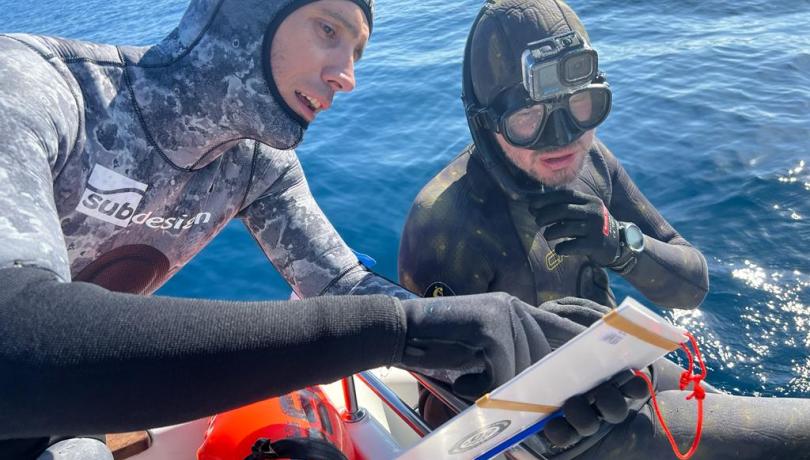The initiative officially launched with an inaugural meeting held in El Port de la Selva that was attended by representatives of the administration, NGOs, diving centres, researchers and citizens' associations.

The HumanFear project, led by the Institut de Ciències del Mar (ICM-CSIC), officially launched with an inaugural meeting held in El Port de la Selva (Girona) that was attended by representatives of the administration, NGOs, diving centres, researchers and citizens' associations.The project will investigate how underwater human presence — through activities like snorkelling and recreational spearfishing — influences fear responses in coastal fish species and, in turn, alters the dynamics of marine ecosystems.
Local institutions, including the Ajuntament de El Port de la Selva and the Parc Natural del Cap de Creus, supported the launch event. The mayor, Lídia Ferrer i Grau, emphasized the town’s strong connection with the sea, stating,
“It is an absolute pleasure to support such research activities. Our citizens have a deep connection with the sea, and I am looking forward to strengthening this collaboration to boost the sustainability of underwater activities.”
Ponç Feliu, director of the Cap de Creus Natural Park, added:
“We are at a crossroads in the management of human activities within the park, and projects like this will provide quantitative tools that can serve as a thermometer — not only for managing recreational fishing but also other underwater human activities.”
Dr. Valerio Sbragaglia (Ramon y Cajal researcher at the ICM-CSIC) – the principal investigator of the project – highlighted the project’s broader scientific relevance:
“HumanFear addresses a fundamental research question by using human–fish interactions as a model system. It is not only expected to shed light on how wildlife adjusts fear seasonally in response to humans, but it can also — if there is political will — provide measurable ecological indicators to support effective management of underwater human activities.”
By combining classical ecological metrics of fear with cutting-edge video monitoring technology, HumanFear aims to pioneer a novel perspective on human–nature interactions in marine environments. The project investigates fear as a key ecological driver, with potentially far-reaching implications for conservation strategies and environmental policy.
The project reflects ICM-CSIC’s ongoing commitment to understanding marine life in a rapidly changing world. It is supported by a “Ramón y Cajal” research fellowship funded by the Spanish Ministry of Science, Innovation, and Universities (MICIU), as well as by the HumanFear project funded by the Spanish State Research Agency (AEI).